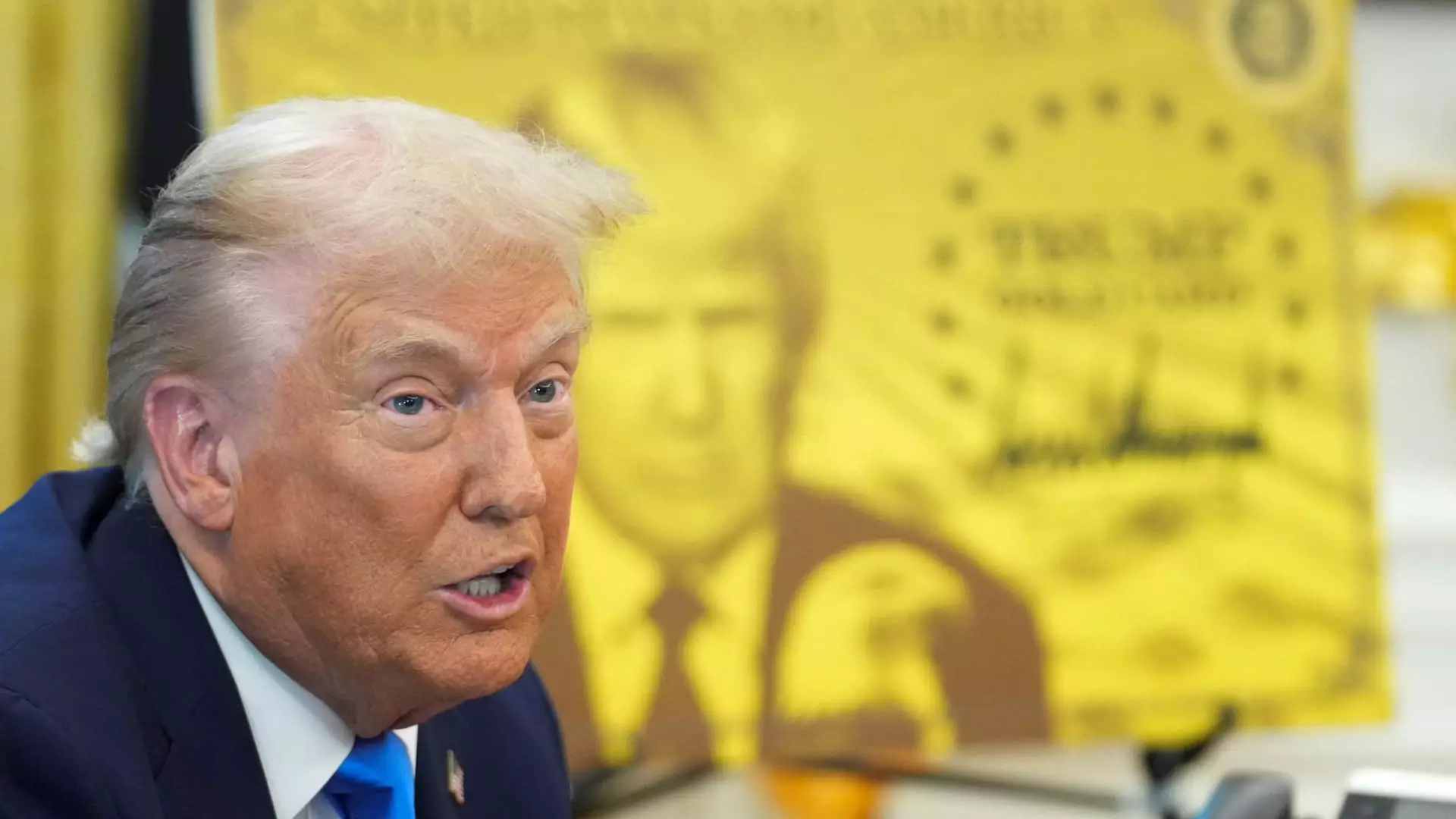The recent announcement of a staggering $100,000 fee on new H-1B visa applicants by the Trump administration signals a radical departure from traditional American immigration policy, raising profound questions about the nation’s competitiveness in global innovation. While designed ostensibly to protect American workers, this move risks undermining the very workforce that has historically driven America’s leadership in technology and finance. It’s a short-sighted policy, driven more by political posturing than by a genuine strategy to bolster economic strength.
Implementing such an exorbitant fee for highly skilled immigrants reflects a misunderstanding of how innovation ecosystems function. The H-1B program has served as a vital pipeline for talent, enabling companies to access specialized skills not always available domestically. By restricting this pathway with a fee that effectively stifles entry, the administration threatens to hollow out critical sectors that rely heavily on international expertise, particularly in Silicon Valley and New York City.
The Impact on Industry Giants and the American Workforce
Major corporations like Amazon, Microsoft, and Google leverage thousands of H-1B visas to maintain their competitive edge. These companies have thrived because of their ability to attract top-tier talent from around the world. A sudden increase in fees risks alienating these vital workers and, by extension, damaging U.S. innovation capacity. The ripple effects are tangible: companies are advising their H-1B holders to stay put and avoid overseas travel—even amid global talent shortages—highlighting the chaos that this policy instigates.
Furthermore, this move could have a paradoxical effect: inflating the cost of highly skilled labor, which ultimately could be passed on to consumers or result in reduced competitiveness. The economic calculus here is flawed; penalizing legal immigrants, who often fill niches that American workers are unwilling or unavailable to fill, does nothing to enhance job opportunities for U.S. citizens but instead risks driving innovation and investment offshore.
Rumblings from Allies and Adversaries Alike
The international response underscores the potential damage to diplomatic and economic relations. India’s Ministry of External Affairs and South Korea’s government have expressed concern, signaling that such policies could disrupt longstanding bilateral cooperation in science, technology, and business. These nations rely heavily on their highly educated workforce migrating to the U.S., and their apprehension signals the loss of the collaborative spirit that has historically propelled global progress.
Politically, this move aligns with a nationalist narrative that prioritizes native-born workers over international talent. However, the reality is more nuanced: America’s economic vitality depends on attracting the world’s best minds, regardless of their origin. The idea that a hefty fee will somehow safeguard American jobs ignores the complex dynamics of global labor markets, where talent—not visas—drives innovation.
The Future of U.S. Innovation Under Threat
The true consequence of this policy will be an erosion of America’s status as a magnet for technological talent. Industry leaders recognize that the H-1B program fuels the growth of the tech sector and sustains the country’s leadership role. Imposing a fee that discourages participation will likely lead to a decline in the number of skilled immigrants choosing to work in the U.S., shift the advantage elsewhere, and potentially diminish America’s edge in international competitiveness.
From a pragmatic perspective, the policy is ill-conceived. It seeks to do the opposite of what it claims—protecting American workers—by making it less attractive for skilled foreign professionals to come or stay. The loss of innovative capacity and global influence could have disastrous long-term economic consequences for a country that has thrived on openness and diversity.
In the end, the move reveals a fundamental misunderstanding of the core drivers of economic growth: talent, innovation, and international cooperation. Restrictive policies like this risk turning the U.S. into a less inviting place for the brightest minds—those who, historically, have helped build America’s technological empire. Instead of fortifying our competitive advantage, these measures threaten to weaken the very foundations on which America’s economic success has been built.

